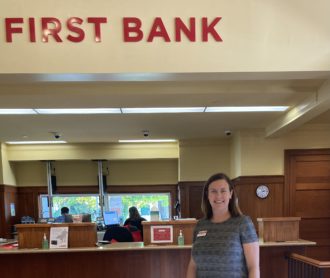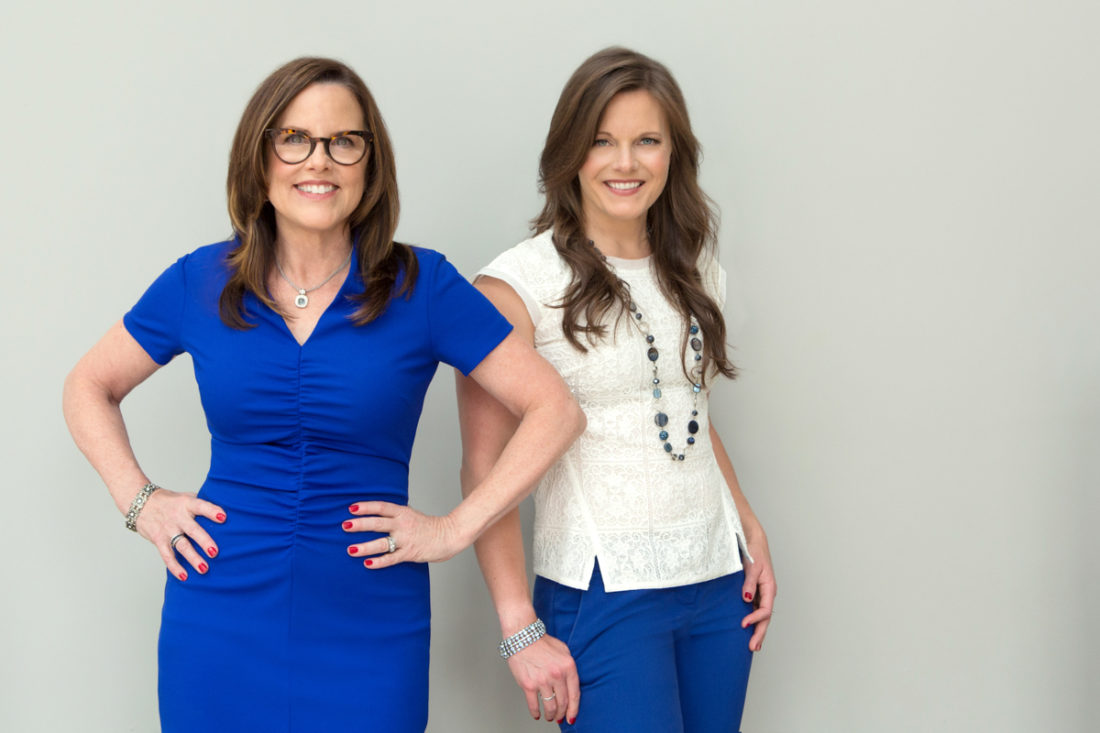By Lisa Allen
Faith Doyle has seen the good, bad and ugly as a female in the financial industry.
Although she came armed with a biochemistry bachelor’s degree (having been the only woman in her program), an MBA, financial planning certification and years of sales experience, her former Asheville employer insisted she begin her financial advising career in the mid-2010s by answering the phones.
“A year and a half later, they hired a man for the same position, but he was treated as a financial adviser right from the start. He didn’t have to answer the phones,” Doyle says.
Doyle also noticed that her boss would ask her male colleagues to join him for lunch, but not her. She recalls, “I asked him about that, and he says, ‘What would my wife think?’”
Today, she works at the all-female Webb Investment Services in Asheville. (Like most small financial firms, it’s affiliated with a larger entity — in its case, Florida-based Raymond James — for better access to financial research and markets.) “I think women are perfectly suited as financial advisers,” Doyle says. “We have the emotional intelligence to help people think through problems and come up with solutions that work for their specific circumstances.”
The conviction that women make great financial advisers prompted Laura Webb to start her firm 27 years ago. Ever since, she primarily has sought out female advisors and has only hired one male adviser over the company’s history.
“It’s my preference,” Webb says. “I am interested in getting more women in this industry. The needle hasn’t moved much yet, but you have to see it to be it.”
Making sense of dollars
Webb wants women to become more comfortable talking about money. “In our society, money is a taboo topic, especially for women,” she explains. And as she says often, taking control of one’s money means gaining control over one’s future.
But she’s beginning to see a shift. “Women my age — I’m in my 60s — and younger are more comfortable working with women.”
Two years ago, Webb and Doyle launched “Her Two Cents,” a biweekly podcast to help women get familiar with their finances. In all, the segments have been downloaded 9,000 times, Doyle says. Topics range from savings and investing to navigating all of life’s transitions. (Spoiler alert: Every life transition, such as having children, moving, retiring or even getting a dog, involves money.)
“The podcast is multigenerational,” Webb says. “I’m over 60, and Faith is 40. We can’t be everyone’s financial adviser, but we want to help all women take control of their financial futures.”
“Collectively, we’re trying to normalize the conversation among women about money. We want to help women take control of their wealth,” Doyle adds, noting that more than half of her clients are women. “Women either handle their families’ finances or their husbands encourage them to learn about money because wives often outlive their husbands.”
Gender gaps
Raising awareness about money matters also may help attract women to the financial sector. According to the U.S. Bureau of Labor Statistics, 31% of financial advisers in the U.S. are women, but those in the industry think the number is even lower. Financial magazine Barron’s estimates that no more than 20% of financial advisers are women, and only 12% of the publications’s top 100 advisers are women. The numbers thin out even more at the top spots: Only 3% of financial firms’ CEOs are women, Barron’s reports.
Some come to the industry by indirect paths. Leslie Apple had been a counselor with Outward Bound in Asheville before starting her own career counseling business. It was then that a representative from the St. Louis-based financial firm Edward Jones asked if she had considered a career in financial advising.
“I told him, no, I hadn’t thought of being a rodeo clown either. I didn’t see the connection,” Apple says. “But then he explained that, as a career counselor, I help people articulate their goals and create a long-term plan. Financial advising is pretty much the same thing.”
Apple’s success at the Asheville branch of Edward Jones after just five years has been swift, despite having a child and enduring the pandemic. She says she’s been able to build a strong client base more quickly than many advisers.
“I went from teaching, which is mostly women, to the financial industry, which is mostly male. I’ve never felt more supported and encouraged here,” Apple says. “If they treated teachers like this, they would never leave.”
But the fact that most advisers are men and most support staff are women still trips up financial firms. “Once or twice, when I called home office with a question, they told me that was a topic the advisor should handle,” Apple says. “I said, ‘I am the adviser!” She says that things have gotten better since a woman landed the top spot at Edward Jones in 2019.
Unstuck as tellers
In other areas of finance, women still bump against a glass ceiling, even though their talents in customer service are recognized.
While women make up 53% of the entry-level banking workforce, they make up less than one-third at the senior vice president and C-suite levels, according to consulting firm McKinsey. And across the financial industry overall, including asset management, banking, insurance and payments, 87 women are promoted for every 100 men. The McKinsey study also found that Black women are the least likely to be promoted to a manager position, with just 37 for every 100 men promoted. (Asian women are more likely than men to be promoted.)
Despite these odds, some local women are finding success. Lisa Krampf is a loan originator at the Asheville office of Radius Financial Group, a Massachusetts-based company founded by a woman. She says she chose Radius because so many of its employees are women.

“I know every name in the company,” Krampf says. “I interviewed with three companies, but I like how team-oriented it is. I like the fact we are customer obsessed.”
She had previously worked in the energy sector and says finance is a welcome change. “Energy is male dominated, too, but I didn’t get the sense that women were respected,” she explains. “It seems in banking, our clients appreciate that women are so service oriented.”
Brittany Marshall, the Asheville area retail manager for First Bank, says she hasn’t been treated differently as a woman in banking.
“I am sure there are stories of women who have not been treated fairly in the banking industry, but I have not personally encountered any experiences that likely wouldn’t have happened if I were a man,” Marshall says. “I have focused my career in the community bank sector. I have never felt disrespected or belittled for being a woman. I can honestly say that I’ve always felt rewarded for my contributions with upward movement opportunities.”
Having started as a teller at a small bank in Hendersonville, Marshall quickly realized banking provided a long-term career path. She points out that several members of the WNC leadership team at First Bank are women, including both area retail managers overseeing 16 branches, the treasury services bank officer and the regional private banking executive. And the CFO of the entire company, with 94 branches across the Carolinas, is female as well.
“What I thought was going to be a temporary job has turned into an extremely rewarding 17-year career,” Marshall says. “I looked around and saw women in leadership roles and the various jobs you could have at a bank and knew there were career growth opportunities for me.”



Before you comment
The comments section is here to provide a platform for civil dialogue on the issues we face together as a local community. Xpress is committed to offering this platform for all voices, but when the tone of the discussion gets nasty or strays off topic, we believe many people choose not to participate. Xpress editors are determined to moderate comments to ensure a constructive interchange is maintained. All comments judged not to be in keeping with the spirit of civil discourse will be removed and repeat violators will be banned. See here for our terms of service. Thank you for being part of this effort to promote respectful discussion.